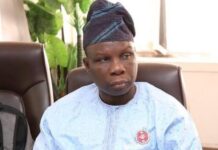Sall taking ECOWAS from frying pan to fire, by Azu Ishiekwene
In Conversation with Azu
As the troubled Economic Community of West African States (ECOWAS) convenes its Ministerial Council meeting in Abuja on February 8 to discuss the quit notice served by three of its members – Mali, Burkina Faso and Niger – the situation in Senegal might well be the elephant in the room.
Three weeks to the presidential election earlier scheduled to hold in that country on February 25, President Macky Sall announced that the election had been postponed, without immediately giving a new date or any believable reasons. After a wave of protests, he instigated the Senegalese Parliament to announce December 15 as a possible new date.
It’s not the postponement that will worry ECOWAS leaders as ministers meet in Nigeria, where presidential elections have been postponed twice in the last 10 years even on the eve of voting; it’s Sall’s recent shifty habit – first eying a third-term and then denying it, followed by his government’s crackdown on opposition candidates.
The problem in Mali, Burkina Faso and Niger — three delinquent countries that have accused the community of complicity and negligence in its obligations and signalled an intention to quit — is bad enough.
That threat alone has not only put trade in the community estimated at $208.1 billion at risk, minus informal trade amongst citizens which constitutes about 30 percent of the transactions; it also threatens to complicate the security situation in the subregion that is already facing serious problems from violent extremism and banditry.
Hypocritical oath
A politically unstable Senegal is the last thing that the community needs at this time. Of course, it’s unlikely that the situation in Senegal will feature at the ECOWAS meeting, where an allegiance of hypocrisy, elegantly called the principle of “non-interference”, forbids members from telling one another the truth.
The point, however, is that the resurgence of military rule in a number of African countries today, particularly in Mali and Burkina Faso, is partly traceable to blatant disregard for constitutionalism, the rule of law, and rigged transitions – the sort of bad habit that Sall is showing in his old age.
Sall looked like the most unlikely candidate for this nonsense. In some ways, he reminded me of Senegal’s founding president, Leopold Senghor – urbane, intellectual and sensible. A geologist and widely travelled man, Sall built his way up from the bottom of the political ladder. Although he started his journey as a minister under former president Abdoulaye Wade, he soon returned to his base where he took up position as mayor of his hometown.
He took up other ministerial positions later on and also became the president of the country’s parliament. He fell out with his mentor, Wade, after he dragged Wade’s son to parliament to answer corruption charges. But his quarrel was not personal.
READ ALSO: ECOWAS: Is this the beginning of the end?, by Azu Ishiekwene
Sall seduced
Senegal was drifting, the cost of living was rising and infrastructure collapsing. Wade’s answer, if he had any, was to attempt to bend the constitution to extend his rule. Sall rallied the opposition. At a stage, the Parti Democratique Senegalais (PDS), where Sall had risen to become prime minister, could no longer contain Wade and Sall. He broke off to form his own Hope Alliance on which platform he challenged Wade in the 2012 presidential election and defeated him, with the assistance of a coalition, after a run-off.
This same Sall, who is losing his way and dragging his country along with him, set a high mark when he assumed office. He cut the size of his cabinet as he had promised, ploughed funds into the renewal of infrastructure and even made a proposal to parliament that would have reduced his term from seven to five-year two-term limit!
Strong arm tactics
All of that now appears to have been in the former life of a fairytale. As Sall’s reset two terms of 12 years neared its end, he slowly became the worst possible version of Wade, toying with an extended tenure and hounding the opposition with a number of his strongest opponents, including Ousmane Sonkoh, who has now been bumped off the trail on contrived charges. Sall, in short, has been seduced by what he hates.
ECOWAS will not be bothered if Sall changed his mind by December and sought an illegal third term. In the last four years, two regional leaders wangled illegal tenure extensions – Alpha Conde of Guinea and Alassane Ouattara of Cote d’Ivoire. The first didn’t quite get away with it after soldiers struck and removed him from office, setting off the region’s coup spiral; while the second is the current host of the African Cup of Nations (AFCON).
Perhaps if there’s one person left in the community on whom the burden falls to whisper to Sall that this is not the Senegal that we used to know, it’s Nigeria’s President Bola Ahmed Tinubu. As surely as a stumble imitates a fall, the signs from Dakar are those that presage what could become a full-blown political crisis for the region if left unattended.
Tinubu, who promised to promote a coup-free region when he assumed office as chair of ECOWAS last year, cannot afford another country added to the regional coup belt. The same way he requested regional leaders at a meeting in Abuja to give George Weah a standing applause for the exemplary transition in that country, he needs to pull Sall’s ear, behind closed doors, and ask him to stop playing games.
For ECOWAS to achieve the African Union (AU) objective to Silence the Guns in Africa by 2030, the community must pay attention to the underlying factors that breed resort to guns violence, a few of the obvious ones being rigged elections, suppression of dissent, and the rule of strongmen. When regional leaders like those in the delinquent states complain that the community is insensitive to problems caused by Western or foreign meddling, it’s the elite, like Sall, that open the door enabling such meddling.
Oasis in jeopardy
An oasis of stability and a shining light in a highly politically volatile region, Senegal was one of the few countries on the continent that others looked up to. According to Martin Meredith in his book entitled, The Fortunes of Africa, “Over the course of 150 elections held in 29 countries between 1960 and 1989, opposition parties were never allowed a single seat. Only three countries – Senegal, Botswana and the tiny state of the Gambia – sustained multi-party politics, holding elections on a regular basis that were considered reasonably free and fair.”
That’s the reputation that Sall threatens to drag in the mud. Tinubu needs to remind Sall that it was he, Sall, and Nigeria’s former President, Muhammadu Buhari, who led the regional response to flush out Yahaya Jammeh in neigbouring The Gambia when Jammeh was on the verge of disrupting the outcome of the elections there because they did not favour him.
By railroading a 10-month postponement of elections through Parliament, Sall is obviously hoping to succeed where Wade and Jammeh failed. And he doesn’t care the cost. But ECOWAS should. The community cannot afford to wait until Senegal becomes another basket case before weighing in.
Ishiekwene is Editor-In-Chief of LEADERSHIP
Disclaimer
The opinions and views expressed in this article belong solely to the original author and other contributors. They do not necessarily reflect the official policy or opinions of Neptune Prime.
Follow the Neptune Prime channel on WhatsApp:
Do you have breaking news, interview request, opinion, suggestion, or want your event covered? Email us at neptuneprime2233@gmail.com





